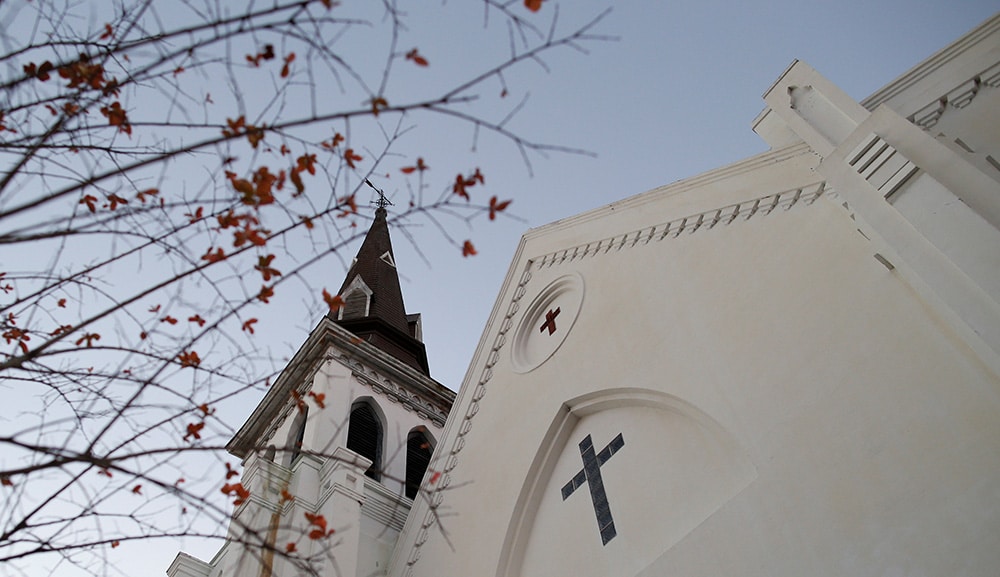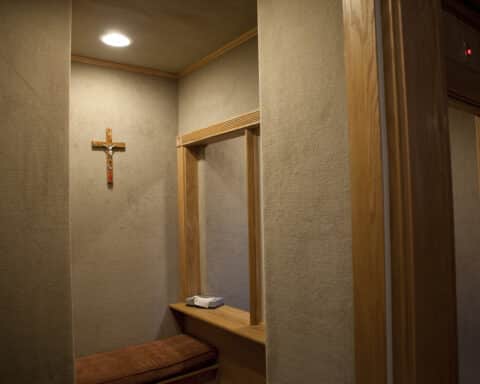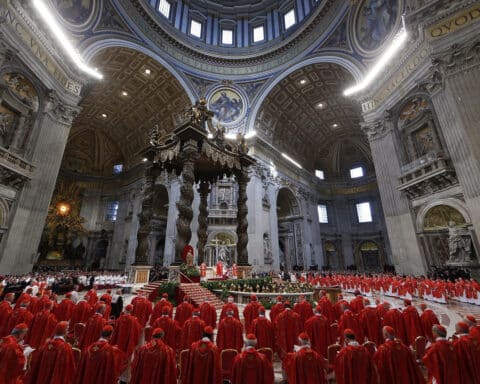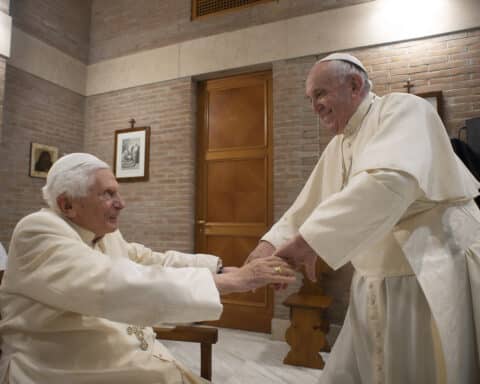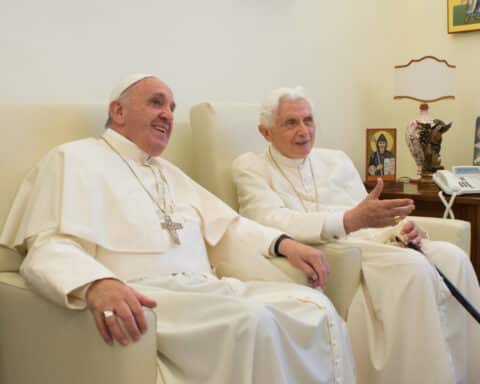Rev. Sharon Risher will never forget June 17, 2015. It was a Wednesday, and she was making her rounds as a trauma chaplain at Parkland Hospital in Dallas, Texas.
“I was tending to a family that had just lost their grandfather, and my cellphone kept ringing,” she said. “I was able to step away and saw that the calls were from my daughter. She told me that she had heard from my nephew in Charleston (South Carolina) that there had been a shooting at our family church, but she wasn’t sure of all the details.”
Risher returned to talk with the grieving family, but her phone kept buzzing.
“It was several hours later that day that I finally got the news that my mother had been killed in the church shooting,” she said.
Her mother, Ethel Lee Lance, was one of nine churchgoers gunned down by a young white supremacist, Dylann Roof, who had come to a Bible study at Mother Emanuel African Methodist Episcopal Church (AME) in Charleston that evening. Two of Risher’s cousins and a close childhood friend also were killed in the massacre.
“Since that day, my life has never been the same,” Risher said.
Risher is the author of a new book, “For Such a Time as This: Hope and Forgiveness after the Charleston Massacre.” In it, she tells her mother’s story and shares the personal struggles with loss, faith and forgiveness in the face of horrific tragedy.
“I wanted to give readers the whole story,” Risher said in regards to her impetus to write the book. “I wanted people to understand the effects this incident had on individual lives and families and on a very personal level. These people who were killed were real people and not just sound bites on the evening news.”
Road to forgiveness
The heart of Risher’s journey has been the road to forgiving her mother’s killer.
“It wasn’t easy,” she told OSV. “My faith as a Christian and, in particular, as a clergy member was really put to the test. I went back and forth between wanting him (Roof) dead on the one hand but also realizing that that is not what my Christian faith teaches.”
Risher felt guilty about those mixed feelings.
“I thought there were some things that were unforgivable,” she said. “You would never want to forgive someone who had done such an horrific act. I had to go through a spiritual journey and really understand about forgiveness and how all that pertained to me. It took a lot of grief and self-reflection to come to the decision.”
She said that it took about two years for her to publicly proclaim that she forgave him.
At his federal trial more than a year after the incident, Risher and others had a chance to face Roof and provide victims’ statements.
“I felt sorry for him,” she said. “Here was this young man who had been radicalized by the white supremacist movement. But I knew that God is a loving God and that he loves Dylann Roof as much as he loves me. I told him (Roof) that I wanted these nine angels (of the AME shooting) to come visit him in his cell every night and have Bible study with him, and, maybe before his life is over, he will repent and call on the name of Jesus.”
Accidental activist
Risher said that the Charleston shooting pushed her into the media spotlight overnight. She has become an advocate against gun violence and a promoter of peace. She is a widely sought-after speaker, having appeared on CNN, CBS and the BBC, as well as numerous other media outlets.
“If this hadn’t happened, I would probably be still at Parkland (Hospital). I really enjoyed my work,” she said from her home, now in Charlotte, North Carolina. “However, as we know, God’s plans are not our plans.”
Risher takes solace in the fact that she knows her mother would be proud of her and her new ministry. “My mom knew that I was not just a follower but a leader,” she said. “I carry her and those nine (victims) with me wherever I go and speak. I call upon their names to be with me.”
She told OSV that, in her travels, she regularly hears from people who struggle with forgiveness in their own lives, and that is OK.
“I tell everybody that I meet that it is a hard process, and it takes courage to be true to who you are and what you feel,” Risher said. “It takes time to make that decision, and it cannot be rushed. Maybe you won’t get there, but you should keep fighting for it, as forgiveness brings peace to your life. It takes hard spiritual work.”
Don’t lose hope
Four years after the Charleston shooting, the headlines haven’t changed much. Just in the last year, Jewish synagogues, Christian and Catholic churches, and Muslim mosques all have been targeted as the sites of deadly shootings.
However, Risher said that we cannot lose hope in humanity.
“There is so much more good than there is evil,” she said. “I see signs of hope and encouragement even in the midst of such violence, because these events make people more aware of the crises that we have. After each event, we gain more people in the struggle against gun violence, for instance. People are coming together.”
She added that there are conversations happening that wouldn’t normally occur between people of different ethnicities and socioeconomic backgrounds.
“It is bringing people together for the wrong reason, unfortunately,” Risher said. “But I think there is more good than not. We cannot lose hope.”
Eddie O’Neill writes from Michigan.
| About Mother Emanuel A.M.E. Church |
|---|
|
Founded in 1816, Mother Emanuel African Methodist Episcopal Church is the oldest A.M.E. church in the southern U.S. It has a turbulent history. In 1822, one of the church’s founders, Denmark Vesey, was implicated in a slave revolt plot. He was executed after a secret trial. The original church was burned by a crowd of angry whites, and worshipers had to meet underground for years. The church was rebuilt after the Civil War. One of the church’s pastors, Rev. Richard H. Cain, was elected as a Republican Congressman in the U.S. House of Representatives. The rebuilt church of 1865-72 was demolished in the earthquake of 1886, and the current building was dedicated in 1892. Booker T. Washington, Dr. Martin Luther King Jr. and Rev. Wyatt T. Walker of the Southern Christian Leadership Conference all spoke at the church, which has been involved in civil rights and workers’ rights demonstrations. Another senior pastor, Rev. Clementa Pickney, was elected a state senator in 2010. The church is a cultural hub with arts and concerts. On June 17, 2015, Dylann Roof shot nine church members during a Bible study. The nine included State Senator Clementa Pinckney, Cynthia Hurd, Depayne Middleton-Doctor, Sharonda Coleman-Singleton, Susie Jackson, Myra Thompson, Tywanza Sanders, Ethel Lance and Daniel Simmons.
|

